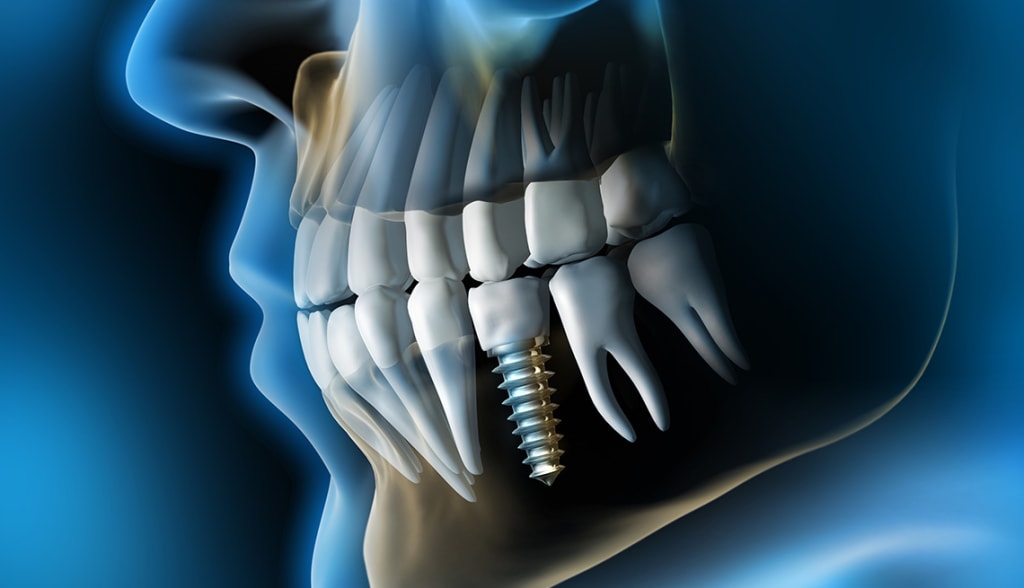Everything You Should Know About Dental Implants
Dental implants have become a popular and efficient option for people who have lost their teeth due to accidents, decay, or other oral problems. If you're thinking about getting dental implants, you should know what they are, how they function, and what you can expect during the procedure. In this article, we will discuss everything you should know about dental implants.

Dental implants have become a popular and efficient option for people who have lost their teeth due to accidents, decay, or other oral problems. If you're thinking about getting dental implants, you should know what they are, how they function, and what you can expect during the procedure. In this article, we will discuss everything you should know about dental implants.
What are dental implants?
Dental implants are prosthetic tooth roots that are surgically implanted into the jawbone. They provide a strong and secure foundation for artificial teeth or bridges. Implants are made of titanium or other biocompatible materials, which means they will not be rejected by the body.
How do dental implants work?
Dental implants work by integrating with the jawbone through a process known as osseointegration. The implant fuses into the jawbone during this procedure, giving a firm and secure foundation for the replacement tooth or bridge.
The dental implant procedure
Typically, the dental implant process consists of several stages:
- Consultation and examination: To determine if you are a good candidate for dental implants, your dentist will examine your teeth and gums, as well as take X-rays and impressions of your oral cavity.
- Implant placement: Implant placement is the first stage in the implant procedure. The implant will be inserted into the jawbone through a tiny incision in the gum tissue made by the dentist.
- Healing process: A healing process starts after the implant is inserted. The device usually requires several months to fuse with the jawbone.
- Abutment attachment: The abutment is connected to the implant after it has fused with the jawbone. The abutment is a tiny connector that attaches the implant to the substitute tooth or bridge.
- Placement of the new tooth or bridge: Finally, the replacement tooth or bridge is connected to the abutment.
What are the benefits of dental implants?
Dental implants have several advantages, including:
- Improved looks: Dental implants have the appearance and feel of real teeth, which can enhance your confidence.
- Improved speech: Missing teeth can impair your ability to talk effectively, but dental implants may restore it.
Improved oral health: Dental implants help avoid bone loss and other oral health issues that can arise when teeth are absent.
Improved comfort: Dental implants are more comfortable than other dental treatments because they do not require the use of adhesive or other dental products.
- Improved function: Dental implants work similarly to natural teeth, enabling you to eat and drink with comfort.
What are the risks and complications associated with dental implants?
Dental implants, like any surgical procedure, can have some risks and problems, including:
- Infection: Infection at the implant location may necessitate medicines or other therapy.
- Nerve damage: During the implant process, nerve damage can occur, causing discomfort or numbness in the mouth or face.
- Implant failure: In rare cases, the implant may fail to fuse with the jawbone, necessitating implant removal, and replacement.
- Sinus issues: Dental implants put in the upper jawbone may protrude into the sinus cavity, producing sinus complications.
- Allergic reaction: Some individuals may develop an allergic reaction to the materials that compose dental implants.
How to care for dental implants
Dental implants require the same care as natural teeth. It is important to brush and floss your teeth on a regular basis and see your dentist for regular exams and cleanings. It is also critical to avoid solid or sticky foods, that may negatively impact the implant or restoration.
Moreover, your dentist may advise you to use a specific mouthwash or an interdental brush to remove debris around the implant to prevent an infection. If you have any questions about how to properly care for dental implants, you can contact a dental implant specialist.
How long do dental implants last?
With appropriate care and maintenance, dental implants can last for many years. The lifespan of an implant is determined by multiple factors, including the patient's oral health, the implant's quality, and the implant's location in the mouth. According to some research, dental implants have a success rate of more than 95% after ten years.
What is the cost of dental implants?
The overall cost of dental implants can differ based on several factors, including the number of implants required, the location of the implants, and the complexity of the process. Dental implants are generally more costly than other teeth restoration options, like dentures or bridges. However, many dental insurance plans cover some or all of the expenses of dental implants, so it's essential to check with your insurance provider before making the decision to get them.
The bottom line
Dental implants are a common reliable treatment option for people who have lost teeth. They provide several advantages, including better look, speech, oral health, comfort, and function. Dental implants, like any surgical treatment, have risks and problems and may not be suitable for every individual.
If you're thinking about getting dental implants, consult with your doctor to see if they're a good option for you and to learn more about the procedure and aftercare. Dental implants can provide a long-lasting and natural-looking option for missing teeth with appropriate care and maintenance.
About the Creator
Amelia Grant
I am journalist, and blogger.






Comments
There are no comments for this story
Be the first to respond and start the conversation.